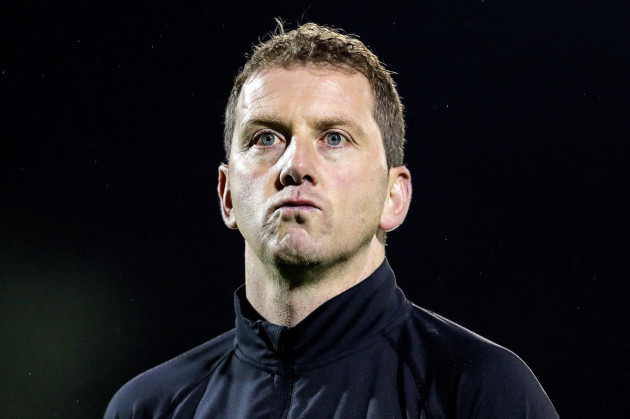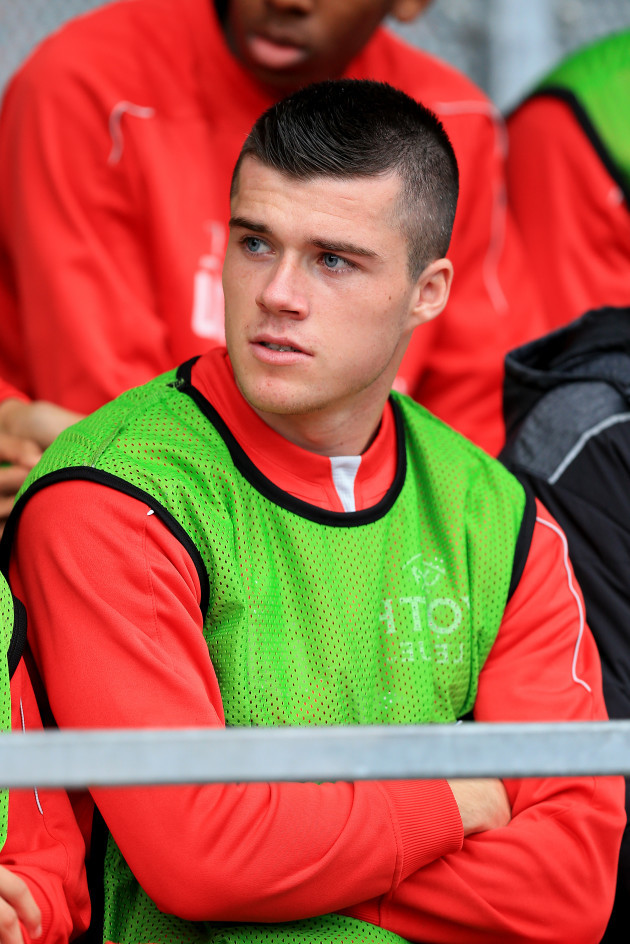THE IMPACT OF Brexit on Irish football remains to be seen, but there is a growing sense that it may not necessarily have a detrimental effect.
One of the potential ramifications is that promising young players won’t be allowed to leave the country until their 18th birthday.
The Football Association of Ireland’s Interim Deputy CEO, Niall Quinn, says he is as in the dark as everyone else in terms of what will happen next.
However, the former Arsenal, Man City and Sunderland forward has routinely talked up the benefits of young Irish footballers completing their Leaving Cert and prioritising education over their careers to a degree.
“Personally, I want to see any young person who leaves here to go to England with an education,” Quinn said recently.
“I was robbed in some ways of my education. I was in sixth year when I left, I could have stayed, but I didn’t. And I always regret that — I’ll get back and do it one day.
I’ve seen too much heartache in the meantime of young players going over without education. Some got playing again in League of Ireland and football stayed as the staple of their being. But for others, I’ve seen people annoyed by the game and the problems that it caused them.
“So I don’t have the correct answer for that right now [how the FAI will address the footballing ramifications of Brexit], but I would welcome a lift in the age to 18 of any player that goes over to sign full time.”
Dundalk boss Vinny Perth also believes British football’s difficulty could be the League of Ireland’s opportunity.
The coach says that the Lilywhites’ performances in Europe in recent years, and particularly their memorable 2016 Europa League run, has raised the profile of the league elsewhere.
“I spoke to many players in the off-season, I spoke to an agent from Serbia and Croatia, and a lot of the players on his books know who Dundalk are, because of what we have done in Europe.
“As a league, we are known in Europe and people will see it as an opportunity, particularly with Brexit. I think we are on the cusp of a wave. Obviously off the pitch it has been a horrendous 12 months for Irish football but I think that on the pitch it has been a great 12 months and now we can kick on if we do our business right.”
Perth therefore agrees that Brexit could potentially be beneficial to Irish football.
“It can be, yes. But what we have tended to find — we have a young guy called Mark Hanratty, he’s been in and around the first team. He’s from Malahide, never been capped underage, but he has come in to the first team and trained with us and really flourished. So I would say to you that this country seems to be really good at developing late developers, if that makes sense, and we need to be careful.
“You look at the Kevin Doyles, I’m going to forget some here but, your James McCleans, people who have been great for Irish football over many years, we have to be able to develop them. But I think there’s the money and I think there would be the appetite to create an U23 league and even, God forbid we’d mention it, it could be developed with the north and it could be a starting point for people looking for competitive games for players. Both of us are in the same boat and for me, that would be a great starting point for where we go with Irish football, both north and south of the border.”
Ronan Finn is one of those who went to England at a young age, but returned after it didn’t work out. Having departed Cambridge United, he studied in UCD and has enjoyed a successful League of Ireland career since then. Now 32, he is captain of Shamrock Rovers, having also had stints at UCD, Sporting Fingal and Dundalk.
“As I kid I would have been [playing in England]. I then came back and did my degree in UCD. It went from there. I did a route of education, combining it with football, which for me was the right way to go. Everyone has different ways of getting to the top in the League of Ireland.
“Luckily, I’ve always played at a club in the last 10 years that’s wanted to achieve success. I’m at a club now, we’re in a really good place on and off the pitch, and it’s good times to be a Shamrock Rovers player.”
St Kevin’s Boys youth product Robbie McCourt spent three years in West Brom’s underage set-up before returning home, signing with Bohemians initially before joining Waterford ahead of this season. He suspects Brexit will have a positive impact on Irish football
Personally, I think it’s not such a bad thing. The league is getting better and there are more players coming back from England, so if you have young lads coming up and training with League of Ireland first teams, it can only help them, because there’s nothing more a young lad wants to do then play first-team football, whatever level it is.”
Conversely, Bohemians’ Danny Grant was one of those who never made the move to England, and doesn’t feel especially worse off as a result, even if it was somewhat frustrating at the time seeing friends move abroad while he stayed in Dublin.
“When you’re that young, you’re not really as well educated as you should be, and everybody kind of just wants to get across the water, rush it, and they want to go as soon as possible.
“But I don’t think that’s the right move for everybody. You see so many people come back and it’s probably benefited me in a way, that I didn’t go over that early — the opportunity is still there to go over.
“I would like to go over, when I’m maybe 22-23. I’ll get my college degree done and then maybe if I can get a move, that’d be great. But you know so many young people go over and end up coming back, so you’re not really mature enough for me, at 13-14, going over to England.
“It is getting better [in terms of the education offered to young footballers in Britain], but I think it’s important for boys to have an education, because at the end of the day, football might not last forever.”
One player who did move to Britain at a young age and now partially regrets that decision is Alex O’Hanlon.
The Blanchardstown native spent a couple of years at Liverpool, before ultimately being let go. Since then, the 23-year-old has had brief stints at St Patrick’s Athletic and Glentoran, and is currently on the books at Shelbourne, while undertaking a FÁS course in his spare time and possibly looking at a degree in Business Managament thereafter.
“I started playing football at five. All I knew was football. That’s all I was really good at,” he recalls.
“I started out with Huntstown Villa. Then I moved to Home Farm when I was nine. I played for Shels when I was 10. Then I went Kevin’s when I was 13. That’s when I got my move to Liverpool.
“I was going on trials to other clubs. I played in the Hibernia Trophy for Ireland. Luckily for me, I played really well in most of those games and that’s how I got most of my trials in England.
[Moving there] made me grow up and it made me a better person. But I probably should have went over a little bit older. England now, it’s just getting harder and harder to make a breakthrough there.
“You need to have something to fall back on. You can’t just have football. That’s what I kind of regret.
“Coming back now, I’m starting the college route and the education route all over again. [Staying in Ireland before turning 18] is something that would be good for players now, going over with their Leaving Cert behind them.”
Adapting to the challenges of the League of Ireland isn’t always easy, particularly when youngsters have grown accustomed to the less pressurised environment of U23s football.
“You have to bring yourself down, because over in England, the players are at a higher level.
“When I came back, I had very high standards of training. It’s very hard to bring yourself back down, but that’s what you have to do when you come [back to Ireland].”
And did it take O’Hanlon a while to get used to this different environment?
“Yeah, because 23s football over in England is kind of fake. You’re playing for nothing. You’re just playing for yourself really.
“League of Ireland is harder than people think. People think they’re going to come back and rip it up. But it’s better than people give it credit for.”
And as for advice to other aspiring young footballers, who may or may not end up going to Britain?
“Just keep your head down and never doubt yourself. If a manager says that you’re not good enough, always believe in your ability.”
Additional reporting by Adam Festus
The42 is on Instagram! Tap the button below on your phone to follow us!






